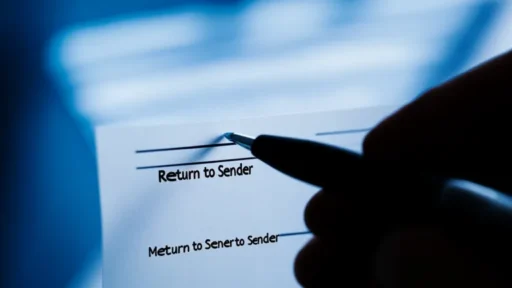The affidavit of execution plays a crucial role in ensuring a will is legally binding. This document serves as a sworn statement by witnesses present during the will’s signing, confirming its authenticity and the testator’s intent. Without this affidavit, the probate process can become more complicated and time-consuming.
Understanding the significance of a will affidavit of execution can save loved ones from potential legal battles and uncertainties. It provides clear evidence that the will was executed properly, offering peace of mind and a smoother transition during an already challenging time.
Understanding the Will Affidavit of Execution
A Will Affidavit of Execution is a crucial document in estate planning. This affidavit certifies that the will was executed in the presence of two witnesses, who attest to the testator’s identity, competence, and voluntariness. Courts accept the affidavit as evidence that the will is genuine, streamlining the probate process.
Key Elements Of The Affidavit
- Witness Statements: The document includes statements from both witnesses.
- Testator’s Awareness: The witnesses confirm the testator’s understanding of the will.
- Date and Location: It records when and where the will was signed.
- Witness Signatures: Both witnesses must sign the affidavit.
Legal Relevance
The affidavit provides a streamlined mechanism for proving the will’s validity. Courts might require witness testimony without this document, increasing the probate’s complexity and duration. The affidavit helps prevent disputes over the will’s authenticity, ensuring smoother legal proceedings.
Key Components of a Will Affidavit of Execution
A Will Affidavit of Execution contains specific elements that ensure its credibility and enforceability in probate court.
Declarant’s Statement
The declarant’s statement is a sworn declaration by a witness affirming the will’s execution. It confirms the will was signed in their presence and they believe the testator was of sound mind. The statement details the date and location of the will’s signing, ensuring the legal requirements for execution were met.
Witnesses’ Signatures
Witnesses’ signatures validate the document. They prove that the will was executed voluntarily and without undue influence. Each witness must sign the affidavit, stating their presence during the testator’s signing and reaffirming the testator’s identity and competence. This step is crucial for proving the will’s authenticity in court.
Legal Requirements
Legal requirements for a Will Affidavit of Execution ensure its validity in probate courts. These requirements vary but generally include state-specific regulations and the notarization process.
State-Specific Regulations
State-specific regulations dictate the legal framework for executing a will affidavit. While all states require at least two witnesses for the will, specific requirements differ. For example:
- California: Witnesses must be over 18 and disinterested parties.
- New York: Witnesses must sign within 30 days of each other and must be over 18.
- Texas: If self-proved, the will requires a notarized affidavit from the testator and witnesses.
Adhering to these regulations helps avoid invalidation during probate proceedings.
Notarization Process
The notarization process strengthens the legal standing of the will affidavit. Notarization involves a notary public verifying the testator’s and witnesses’ identities, overseeing the signing process, and affixing a notary seal. Notarization confirms that each participant signed the document willingly and under no duress. The presence of a notary public reduces the likelihood of contestation, providing additional legal protection.
| State | Key Requirement |
|---|---|
| California | Witnesses must be over 18 and disinterested parties. |
| New York | Witnesses must sign within 30 days of each other. |
| Texas | Requires a notarized affidavit for self-proved wills. |
Common Mistakes to Avoid
Omitting Witness Signatures
Witness signatures validate an affidavit. Without these, the court can’t accept the affidavit, complicating probate. Ensure both witnesses sign the document at the time of the will’s execution.
Using Interested Witnesses
Witnesses must be disinterested parties. Interested witnesses could nullify the will or cause legal disputes. Choose two unbiased witnesses to avoid complications.
Incorrect Date and Location
The affidavit must include the correct date and location of signing. Inaccurate information can call the document’s validity into question. Double-check these details before finalizing the affidavit.
Not Meeting State-Specific Requirements
State laws vary. Failing to comply with state-specific requirements can invalidate the will. For example, Texas mandates a notarized affidavit. Adhere to the regulations of your jurisdiction.
Improper Notarization
Improper notarization weakens the affidavit’s legal standing. The notary must properly verify identities and willingness to sign. Confirm all steps of notarization are followed accurately.
Neglecting the Testator’s Competence
The affidavit should affirm the testator’s mental competence. Any doubts about their competence can result in legal contests of the will. Ensure witnesses can testify to the testator’s sound mind.
Failing to Reaffirm Voluntariness
Reaffirming the testator’s voluntariness in the affidavit is crucial. Courts may question a will if voluntariness isn’t verified. Have witnesses confirm there was no undue influence during execution.
Benefits of Having a Will Affidavit of Execution
Having a Will Affidavit of Execution offers several advantages that promote a smoother probate process and reduce potential disputes.
Ensures Legal Validity
The affidavit ensures the will’s legal validity by confirming that it was correctly executed. Courts accept affidavits as evidence that the will adheres to state laws, minimizing the need for additional proof.
Reduces Probate Delays
With a Will Affidavit of Execution, probate delays decrease significantly. The affidavit provides immediate confirmation of the will’s authenticity, expediting court proceedings without requiring witness testimony.
Minimizes Legal Disputes
Disputes among heirs often arise when a will’s authenticity is questioned. An affidavit affirms that witnesses were present and that the testator acted voluntarily and competently, reducing the likelihood of beneficiaries contesting the will.
Simplifies the Court Process
The affidavit simplifies the court process by providing essential details upfront. Courts receive validated information on the testator’s intent and the will’s execution, streamlining probate administration.
Offers Peace of Mind
An affidavit provides peace of mind to the testator, knowing their estate plan stands on solid legal ground. This assurance extends to beneficiaries, who trust the will reflects the testator’s true wishes.
Discover the Power of BlueNotary:
Integrate your Business, Title Company, or Law Firm to Satisfy your Customers and Decrease Turnaround
Get a document Notarized/Sign-up
Join the Free Notary Training Facebook Group
Conclusion
A Will Affidavit of Execution is crucial for ensuring a will’s legal validity and smooth probate process. This document minimizes the risk of legal disputes and delays by confirming the testator’s intent and competence. Adhering to state-specific requirements and avoiding common mistakes can significantly streamline the probate administration. Understanding the importance of this affidavit provides peace of mind to both the testator and beneficiaries, ensuring that the testator’s wishes are honored and reducing the likelihood of contested wills. Properly executed, a Will Affidavit of Execution simplifies court proceedings and ensures a smoother transition for loved ones.
Frequently Asked Questions
What is a Will Affidavit of Execution?
A Will Affidavit of Execution is a sworn statement from witnesses who confirm the authenticity of a will and the testator’s intent. It certifies that the will was executed correctly, in the presence of two witnesses who verify the testator’s identity, competence, and voluntariness.
Why is a Will Affidavit of Execution important?
It is crucial because it helps make a will legally binding, reduces probate delays, and minimizes potential legal disputes by providing evidence of the will’s proper execution and the testator’s sound mind.
What are the key elements of a Will Affidavit of Execution?
Key elements include witness statements, confirmation of the testator’s understanding of the will, the date and location of signing, and the signatures of both witnesses, affirming their presence during the will’s execution.
What happens if a Will Affidavit of Execution is missing?
The absence of this affidavit can complicate the probate process. Courts may require witness testimony to prove the will’s validity, potentially leading to legal disputes and delays.
Do the legal requirements for a Will Affidavit of Execution vary by state?
Yes, legal requirements can vary by state. For example, California requires witnesses to be over 18 and disinterested, while New York mandates witnesses sign within 30 days of each other. Texas requires a notarized affidavit for self-proved wills.
What are some common mistakes to avoid when preparing a Will Affidavit of Execution?
Avoid omitting witness signatures, using interested witnesses, providing incorrect date/location information, failing to meet state-specific requirements, improper notarization, and neglecting to affirm the testator’s competence and voluntariness.
How does notarization strengthen the Will Affidavit of Execution?
Notarization verifies the identities of the testator and witnesses, ensuring that all parties signed willingly and under no duress. This process further strengthens the legal standing of the affidavit.
What are the benefits of having a Will Affidavit of Execution?
Benefits include ensuring legal validity, reducing probate delays, minimizing legal disputes, simplifying court processes, and providing peace of mind to both the testator and beneficiaries by confirming the proper execution of the will.
Who can witness the signing of a will?
Witnesses must typically be over 18 and disinterested parties, meaning they should not be beneficiaries of the will. State-specific laws may impose additional requirements.
Can a Will Affidavit of Execution be contested?
Yes, like any legal document, it can be contested. However, having a properly executed and notarized affidavit significantly reduces the likelihood of a successful challenge.








